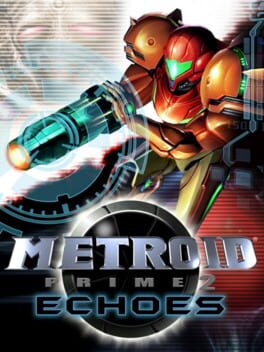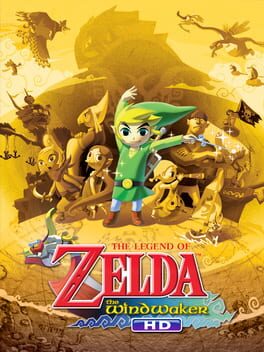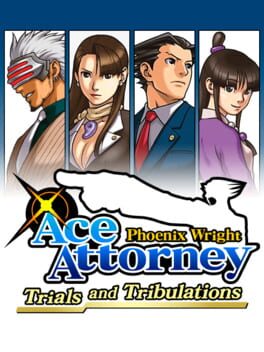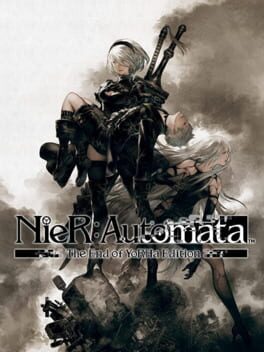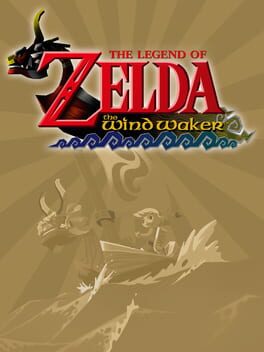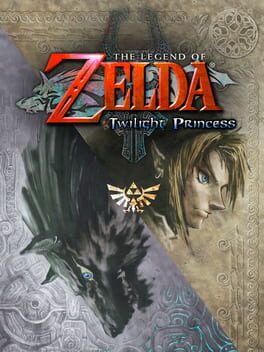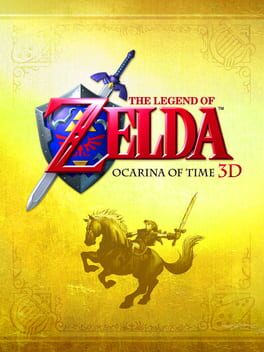manhasev
Bio
Scale
.5☆ - yikes!
1☆ - very bad
1.5☆ - bad
2☆ - below average, forgettable
2.5☆ - average, passable
3☆ - above average, good/great aspects but overall just OK
3.5☆ - good, maybe expected more
4☆ - great, enjoyed it
4.5☆ - amazed, couple small flaws
5☆ - perfect/personal favorites
no score = too hard to rate or non-completable
Scale
.5☆ - yikes!
1☆ - very bad
1.5☆ - bad
2☆ - below average, forgettable
2.5☆ - average, passable
3☆ - above average, good/great aspects but overall just OK
3.5☆ - good, maybe expected more
4☆ - great, enjoyed it
4.5☆ - amazed, couple small flaws
5☆ - perfect/personal favorites
no score = too hard to rate or non-completable
Badges

GOTY '23
Participated in the 2023 Game of the Year Event

Pinged
Mentioned by another user

1 Years of Service
Being part of the Backloggd community for 1 year

Popular
Gained 15+ followers

Donor
Liked 50+ reviews / lists

Liked
Gained 10+ total review likes

GOTY '22
Participated in the 2022 Game of the Year Event

Best Friends
Become mutual friends with at least 3 others

Noticed
Gained 3+ followers

N00b
Played 100+ games
Favorite Games
145
Total Games Played
006
Played in 2024
020
Games Backloggd
Recently Played See More
Recently Reviewed See More
It's sad, but the main thing I am feeling having completed this game is disappointment. Nier Automata is frequently hailed as one of the greatest games to ever grace the medium, a masterpiece that swept the industry with countless awards and accolades to place in its trophy case, lauded by fans as perfection. I'm not here to take away from any of that at all, and I am certainly not here to say this game is garbage or anything, because it isn't. Nier Automata is a game that disappointed me because it was just good. Just fine. It's an ultimately solid game that left me expecting so much more.
The biggest thing that underwhelmed me about this game is actually playing it. The gameplay itself is unfortunately extremely dry and bare bones. I was shocked and still am shocked that an action game with the name "Platinum Games" in the credits has combat that isn't just dry, but barely even surpasses being serviceable. There is like, one or two combos in the game, everything feels super floaty and light, and my god, it's just a button mashing fest. It doesn't help that the enemies can be super spongey at times, so it just makes combat feel like a battle of attrition that I need to get through so I can experience the actual story rather than the core combat of the game. The hacking minigames are mostly a bore and something that I honestly would rather have not done at all, but I appreciate them including something to shake up the gameplay while you're controlling 9S, so, it gets a pass. I do like the plug-in chips system and the ways that you have some freedom in how you build your playstyle, as it actually can alleviate some of the issues with how spongey the enemies can be, but the dryness and shallowness of the combat is probably the biggest thing that had me expecting way more.
Before I get into what I thought about the story, which is probably the primary thing that Nier is lauded for, I want to dive into some of my more personal nitpicks with this game, and specifically with some of the ways that Yoko Taro approaches things. Do not let anyone fool you into thinking this is a game that has multiple "endings". The "endings" that people talk about in this game are actually not endings at all aside from the last few. Endings A and B are essentially chapter conclusions that do not serve as conclusions to the game at large, like, at all. All the other endings are just joke game over endings meant to score quirk points. Does any of this actually matter? Not really, no, but it's just something I can't wrap my head around. Why are these "endings" telling the player that the game is over with a roll of the credits when it is in fact not even close to being over? What is the point with having all of these endings when the game is actually supposed to be experienced from endings A to E in a cohesive fashion? I don't see a reason for structuring your game in this way. This isn't really something I can actually knock the game for but it was on my mind a lot so I wanted to say it.
The story is... good. I really love the characters and the palpable amount of struggle we feel them all go through as they change and adapt to what they learn about the world, but I think the story itself hits bumps and potholes along the way to its conclusion. The middle of the game after routes A and B conclude is exceptionally good, with a ton of tension being released as some huge plot twists occur and a pretty gut wrenching final sequence before we are met with "ending" C and the beginning of the final act of the game. Moments like ending C showcase what Nier is best at: applying the gamey-ness of a video game to a story and letting them amplify each other. In other words, the experience that the story is telling in that moment is made so much more powerful by the fact that you, the player, are experiencing it in a way that is made so much more immersive by the mechanics of the game. Again, Nier excels at this in so many different moments, and it is those moments that made this game really start to click with me. But there is an equal measure of moments where the story is too on the nose, or too scattered, or just plain shallow that make me feel so mixed on the plot. The final routes of the game have some incredible building tension as we ascend towards the final fight and ultimate conclusion of the game - but the events that happen in the final location feel rushed, out of left field, even a little bit sloppy sometimes. The antagonist is terribly undercooked and the conclusion, while somewhat powerful, left me with more of a feeling of "oh, that was it?" than anything else. The good thing about this game is that the themes of it are impossible to miss, so there's no way that Yoko Taro's ideas can be lost on you. The bad thing about this game is that the themes of it are IMPOSSIBLE TO MISS because the characters will basically tell you to your face what you are supposed to be feeling or learning with all the subtlety of a shonen anime character's monologue, wiping away much of the early intrigue and emotional payoff for events that should be tugging at my heartstrings.
The best way I can describe this game is as a really, really excellent third or fourth draft of a video game. The combat has good aspects, the story has a spectacular cast, powerful themes, there's a beautiful soundtrack and art direction, and a really strong emotional backbone to build the plot off of. But it's dry. Disconnected in places. It needs editing, proofreading, some fine tuning in some really critical places before it's wrapped up and shipped off. There are highs that feel like an absolutely euphoric grand slam to win the world series and lows that feel like you're on the wrong end of a despair-inducing no-hitter. Bad game? No way. But this one needed some extra work.
The biggest thing that underwhelmed me about this game is actually playing it. The gameplay itself is unfortunately extremely dry and bare bones. I was shocked and still am shocked that an action game with the name "Platinum Games" in the credits has combat that isn't just dry, but barely even surpasses being serviceable. There is like, one or two combos in the game, everything feels super floaty and light, and my god, it's just a button mashing fest. It doesn't help that the enemies can be super spongey at times, so it just makes combat feel like a battle of attrition that I need to get through so I can experience the actual story rather than the core combat of the game. The hacking minigames are mostly a bore and something that I honestly would rather have not done at all, but I appreciate them including something to shake up the gameplay while you're controlling 9S, so, it gets a pass. I do like the plug-in chips system and the ways that you have some freedom in how you build your playstyle, as it actually can alleviate some of the issues with how spongey the enemies can be, but the dryness and shallowness of the combat is probably the biggest thing that had me expecting way more.
Before I get into what I thought about the story, which is probably the primary thing that Nier is lauded for, I want to dive into some of my more personal nitpicks with this game, and specifically with some of the ways that Yoko Taro approaches things. Do not let anyone fool you into thinking this is a game that has multiple "endings". The "endings" that people talk about in this game are actually not endings at all aside from the last few. Endings A and B are essentially chapter conclusions that do not serve as conclusions to the game at large, like, at all. All the other endings are just joke game over endings meant to score quirk points. Does any of this actually matter? Not really, no, but it's just something I can't wrap my head around. Why are these "endings" telling the player that the game is over with a roll of the credits when it is in fact not even close to being over? What is the point with having all of these endings when the game is actually supposed to be experienced from endings A to E in a cohesive fashion? I don't see a reason for structuring your game in this way. This isn't really something I can actually knock the game for but it was on my mind a lot so I wanted to say it.
The story is... good. I really love the characters and the palpable amount of struggle we feel them all go through as they change and adapt to what they learn about the world, but I think the story itself hits bumps and potholes along the way to its conclusion. The middle of the game after routes A and B conclude is exceptionally good, with a ton of tension being released as some huge plot twists occur and a pretty gut wrenching final sequence before we are met with "ending" C and the beginning of the final act of the game. Moments like ending C showcase what Nier is best at: applying the gamey-ness of a video game to a story and letting them amplify each other. In other words, the experience that the story is telling in that moment is made so much more powerful by the fact that you, the player, are experiencing it in a way that is made so much more immersive by the mechanics of the game. Again, Nier excels at this in so many different moments, and it is those moments that made this game really start to click with me. But there is an equal measure of moments where the story is too on the nose, or too scattered, or just plain shallow that make me feel so mixed on the plot. The final routes of the game have some incredible building tension as we ascend towards the final fight and ultimate conclusion of the game - but the events that happen in the final location feel rushed, out of left field, even a little bit sloppy sometimes. The antagonist is terribly undercooked and the conclusion, while somewhat powerful, left me with more of a feeling of "oh, that was it?" than anything else. The good thing about this game is that the themes of it are impossible to miss, so there's no way that Yoko Taro's ideas can be lost on you. The bad thing about this game is that the themes of it are IMPOSSIBLE TO MISS because the characters will basically tell you to your face what you are supposed to be feeling or learning with all the subtlety of a shonen anime character's monologue, wiping away much of the early intrigue and emotional payoff for events that should be tugging at my heartstrings.
The best way I can describe this game is as a really, really excellent third or fourth draft of a video game. The combat has good aspects, the story has a spectacular cast, powerful themes, there's a beautiful soundtrack and art direction, and a really strong emotional backbone to build the plot off of. But it's dry. Disconnected in places. It needs editing, proofreading, some fine tuning in some really critical places before it's wrapped up and shipped off. There are highs that feel like an absolutely euphoric grand slam to win the world series and lows that feel like you're on the wrong end of a despair-inducing no-hitter. Bad game? No way. But this one needed some extra work.
I don't really feel like writing a lengthy review like I did last time for Twilight Princess, but this is a brilliant experience. A Zelda world that I actually felt like exploring every nook and cranny of is an excellent indicator of me really, REALLY enjoying something. The world is such a blast to discover. Dungeons are quick and succinct with really solid theming and bosses that mostly hit the mark. The story is a very bold step in a totally new direction for Zelda while still maintaining the classic Zelda magic and whimsy. The things that people hate this game for (slow sailing, triforce quest) are honestly really not that bad? If you experience this game earnestly and honestly try to explore discover the goodies this world has to offer throughout the entirety of the game (instead of just doing a collectathon in the end of everything), it ends up being really not that excruciating - at best, it's a fun (if tedious) romp around the world to see what you can discover with Link's full kit, and at worst it's an annoyance before the end of the game. The only thing I can knock this game for is some of the more cryptic aspects of exploration and the fact that you have to have so many rupees for endgame, but I can't complain about much else when this world is so inviting and open to freely explore.
Respect is the word I would use to describe this game best. Respect for the past of Zelda, yet respect for the need to move past Ocarina of Time's influence and try something new, respect for the intelligence and memory of the player, and respect for creativity in art style and world design. However, there is a bit of a lack of respect for the player's time. Still, this is a brilliantly fun Zelda experience that has aged so, so gracefully, especially in the visual department. If I played Wind Waker HD I think this might have been a 10 for the quality of life improvements.
Respect is the word I would use to describe this game best. Respect for the past of Zelda, yet respect for the need to move past Ocarina of Time's influence and try something new, respect for the intelligence and memory of the player, and respect for creativity in art style and world design. However, there is a bit of a lack of respect for the player's time. Still, this is a brilliantly fun Zelda experience that has aged so, so gracefully, especially in the visual department. If I played Wind Waker HD I think this might have been a 10 for the quality of life improvements.
Picture this: the year is 2004. You're a 16 year old boy who loves video games. The last Legend of Zelda game to release was the GameCube's Wind Waker. A fine game, but certainly far too "kiddy" with its cartoonish style, and certainly not a style that diehard Zelda players wanted to see again. No, Zelda fans wanted something dark and gritty to wash the taste of the childish "Celda" from their mouths. In a time where Nintendo had fallen out of favor of mainstream gamers with their niche, gimmicky lunchbox console with games for babies, they desperately needed to come out with something that would sway your friends at the school lunch table into thinking that Zelda was, in fact, a game for big boys. Enter E3 2004: Nintendo announces the newest game in the Zelda series, and it looks badass. Link looks realistic and the graphics look so dark and gritty. He's fighting dudes on a horse and mowing down dudes left and right, and holy shit did that say blades will BLEED? IS THERE GONNA BE BLOOD IN A ZELDA GAME? THIS RULES!
Needless to say, if you're a Nintendo fan, you know this trailer. The moment is completely electric, and who doesn't love seeing Miyamoto come out with the Master Sword and Hylian Shield? Revisiting this moment in Nintendo's history is a big part of understanding the thesis of Twilight Princess. It came in a time where Nintendo was beginning to realize that they might not be the top dog on the block anymore. Despite being among the most beloved games in Nintendo's entire library now, Wind Waker's rather annoyed reception back in 2003 was a product of a fanbase that felt belittled, almost as if they needed reassurance that they were on the right team. Nintendo won't be beaten by Sony or Microsoft, right? They can make something for adults, surely? For that reason, Twilight Princess might be the first game to ever be a direct product of peer pressure. They were gonna deliver the mature game that the fans wanted. It was gonna be dark and gritty and bloody and badass, hell yeah...
And then the game came out and people were subjected to herding goats and doing chores for the first three hours of playing.
Yeah, Twilight Princess makes a pretty rotten first impression, even when the weight of being "The Dark Zelda Game" has dissipated at this point. Being forced to tend to the village errand list for the first hour or so is bad enough, but after that, Link is relegated to Wolf Link form for the next hour and change. This is interesting initially and presents a ton of intrigue within the story, as it's a huge twist and comes with a shocking and explosive shift in tone, but once the intrigue has worn off, you're still plodding along and jumping about as a wolf, and worse yet, your primary task is a scavenger hunt to find drops of light and restore an area to its former normalcy. What the hell?
I understood later that this intro serves the game's thematic elements exceptionally well. But man, it's pretty dreadful to go through. This applies to all Wolf Link sections until the midway point of the game. A new form for the player character to transform into is a fine idea, but was the best application they could come up for this really just... a scavenger hunt for drops of light? More sluggish chores? Three damn times? It brings into question whether or not the inclusion of Wolf Link in this game was even really necessary to adding anything to the experience, or if it was perhaps just another effort to make the game appear grittier and darker. Every section that you use it in seems rushed and abbreviated to the point where I wished there was some way to skip them. I think Wolf Link could have been really brilliant if there had perhaps been a boss and perhaps a mini dungeon for each area instead of the scavenger hunts that do nothing outside of waste your time. The way it is utilized in dungeons for the second half of the game where you can freely transform back and forth (rather quickly I might add, which is nice) is much better, but it still feels tacked on and VERY undercooked.
Regardless, Twilight Princess hits its stride about halfway through the game. Getting the Master Sword is a pretty brilliant sequence, but the dungeons that follow are superb. This game has what is perhaps the tightest, most focused and succinct dungeons in the entire series. Each one has an excellent theme and atmosphere and I personally think the more ambient tunes fit them exceptionally well. None of them overstay their welcome either - each one has a great sense of momentum and progress. My personal favorite is the Temple of Time. It's shorter, and essentially a straight line, but the multipurpose nature of each room is made apparent once you get the Dominion Rod. Making your way back through the same halls with your little statue buddy is undeniably awesome. On a similar note, most of all, the items are bar none my favorite in any Zelda game. While they don't get as much use outside of those dungeons, which is unfortunate, what you do get inside the dungeons and boss battles is super fun and extremely creative.
What I think Twilight Princess excels at (and what Nintendo was REALLY trying to accomplish) is being cinematic. There's nothing brilliantly designed or absolutely revolutionary about Twilight Princess in the same way that, say, Ocarina of Time is, but everything about this game just oozes style. The items you get are all creative, yes, but each one is so... dramatic. The ball and chain is a gigantic clobbering weapon that takes a ton of windup. The spinner is a damn beyblade that you can scale tracks with. The double clawshots make you into a dynamic spider-person. The dominion rod allows you to control statues. Each one seems to have this flair in practice that isn't found in other Zelda games. The bosses are especially cinematic. While none of them were even remotely challenging, they all employed fantastic set pieces and dramatic methods of attack. The raging Fyrus requires you to yank him down with his chains; the titanic Morpheel involves Link grappling onto its eye to stab it over and over; Armogohma is defeated by the hammers of gigantic statues; Argorok has to be taken down as Link grapples through the sky and onto its back with the clawshots. It feels like Nintendo was really trying to capture the drama at every possible opportunity. That isn't even mentioning the multiple battles that Link takes part in on horseback, including a dramatic jousting match on a picturesque bridge. The realistic graphics and dark color palette were intentional, yes, but the real meat of Twilight Princess' thesis lies in the commitment to making everything feel cinematic and bold.
Did Nintendo succeed in reestablishing their brand as "The Guys Who Can Make A Dark And Gritty Zelda Game"? I mean, sure, but that isn't even what they really aimed to do here. It's what the fans wanted, and I'm sure many people who played this in 2006 felt as if it was the Zelda game of their dark and edgy dreams (after they finished herding goats, of course), but I think this is a far less ambitious title than people like to say. It's a superb Zelda game once you trim the fat of the unwarranted tedium of the Wolf Link sections, one that immerses you in the adventure of Link by way of making it feel as grandiose as possible. This game's ending embodies this philosophy most of all. A four phase war against the Great King of Evil reborn, Ganondorf, which ends with a one on one duel to the death amidst lightning and dark skies out in Hyrule Field, grappling with destiny as all of the callbacks to Ocarina of Time throughout the game have laid out the subtext of Hyrule's circular history repeating itself evermore. It's perfect for the tone of Twilight Princess and one of my personal favorite conclusions to any video game.
This review obviously glazed over a ton of key facts about Twilight Princess. The story is one of Zelda's strongest, and the character arc of Midna, everyone's favorite companion character, is probably the best in the entire series; the combat (which, of course, also commits to being bold and flashy and cinematic) that allows Link to pull off a handful of fancy maneuvers to fell enemies is a blast; and I love the fact that this game is essentially a spiritual successor to Ocarina of Time, employing some excellent callbacks and references without being overbearing. Nintendo succeeded in their quest, and despite not really doing anything to push the Zelda series or formula into the future, it still stands as a key step in the journey of 3D Zelda. It's a shame that the Wolf Link sections weigh on my mind so negatively, but otherwise, this is easily one of Zelda's strongest titles.
Needless to say, if you're a Nintendo fan, you know this trailer. The moment is completely electric, and who doesn't love seeing Miyamoto come out with the Master Sword and Hylian Shield? Revisiting this moment in Nintendo's history is a big part of understanding the thesis of Twilight Princess. It came in a time where Nintendo was beginning to realize that they might not be the top dog on the block anymore. Despite being among the most beloved games in Nintendo's entire library now, Wind Waker's rather annoyed reception back in 2003 was a product of a fanbase that felt belittled, almost as if they needed reassurance that they were on the right team. Nintendo won't be beaten by Sony or Microsoft, right? They can make something for adults, surely? For that reason, Twilight Princess might be the first game to ever be a direct product of peer pressure. They were gonna deliver the mature game that the fans wanted. It was gonna be dark and gritty and bloody and badass, hell yeah...
And then the game came out and people were subjected to herding goats and doing chores for the first three hours of playing.
Yeah, Twilight Princess makes a pretty rotten first impression, even when the weight of being "The Dark Zelda Game" has dissipated at this point. Being forced to tend to the village errand list for the first hour or so is bad enough, but after that, Link is relegated to Wolf Link form for the next hour and change. This is interesting initially and presents a ton of intrigue within the story, as it's a huge twist and comes with a shocking and explosive shift in tone, but once the intrigue has worn off, you're still plodding along and jumping about as a wolf, and worse yet, your primary task is a scavenger hunt to find drops of light and restore an area to its former normalcy. What the hell?
I understood later that this intro serves the game's thematic elements exceptionally well. But man, it's pretty dreadful to go through. This applies to all Wolf Link sections until the midway point of the game. A new form for the player character to transform into is a fine idea, but was the best application they could come up for this really just... a scavenger hunt for drops of light? More sluggish chores? Three damn times? It brings into question whether or not the inclusion of Wolf Link in this game was even really necessary to adding anything to the experience, or if it was perhaps just another effort to make the game appear grittier and darker. Every section that you use it in seems rushed and abbreviated to the point where I wished there was some way to skip them. I think Wolf Link could have been really brilliant if there had perhaps been a boss and perhaps a mini dungeon for each area instead of the scavenger hunts that do nothing outside of waste your time. The way it is utilized in dungeons for the second half of the game where you can freely transform back and forth (rather quickly I might add, which is nice) is much better, but it still feels tacked on and VERY undercooked.
Regardless, Twilight Princess hits its stride about halfway through the game. Getting the Master Sword is a pretty brilliant sequence, but the dungeons that follow are superb. This game has what is perhaps the tightest, most focused and succinct dungeons in the entire series. Each one has an excellent theme and atmosphere and I personally think the more ambient tunes fit them exceptionally well. None of them overstay their welcome either - each one has a great sense of momentum and progress. My personal favorite is the Temple of Time. It's shorter, and essentially a straight line, but the multipurpose nature of each room is made apparent once you get the Dominion Rod. Making your way back through the same halls with your little statue buddy is undeniably awesome. On a similar note, most of all, the items are bar none my favorite in any Zelda game. While they don't get as much use outside of those dungeons, which is unfortunate, what you do get inside the dungeons and boss battles is super fun and extremely creative.
What I think Twilight Princess excels at (and what Nintendo was REALLY trying to accomplish) is being cinematic. There's nothing brilliantly designed or absolutely revolutionary about Twilight Princess in the same way that, say, Ocarina of Time is, but everything about this game just oozes style. The items you get are all creative, yes, but each one is so... dramatic. The ball and chain is a gigantic clobbering weapon that takes a ton of windup. The spinner is a damn beyblade that you can scale tracks with. The double clawshots make you into a dynamic spider-person. The dominion rod allows you to control statues. Each one seems to have this flair in practice that isn't found in other Zelda games. The bosses are especially cinematic. While none of them were even remotely challenging, they all employed fantastic set pieces and dramatic methods of attack. The raging Fyrus requires you to yank him down with his chains; the titanic Morpheel involves Link grappling onto its eye to stab it over and over; Armogohma is defeated by the hammers of gigantic statues; Argorok has to be taken down as Link grapples through the sky and onto its back with the clawshots. It feels like Nintendo was really trying to capture the drama at every possible opportunity. That isn't even mentioning the multiple battles that Link takes part in on horseback, including a dramatic jousting match on a picturesque bridge. The realistic graphics and dark color palette were intentional, yes, but the real meat of Twilight Princess' thesis lies in the commitment to making everything feel cinematic and bold.
Did Nintendo succeed in reestablishing their brand as "The Guys Who Can Make A Dark And Gritty Zelda Game"? I mean, sure, but that isn't even what they really aimed to do here. It's what the fans wanted, and I'm sure many people who played this in 2006 felt as if it was the Zelda game of their dark and edgy dreams (after they finished herding goats, of course), but I think this is a far less ambitious title than people like to say. It's a superb Zelda game once you trim the fat of the unwarranted tedium of the Wolf Link sections, one that immerses you in the adventure of Link by way of making it feel as grandiose as possible. This game's ending embodies this philosophy most of all. A four phase war against the Great King of Evil reborn, Ganondorf, which ends with a one on one duel to the death amidst lightning and dark skies out in Hyrule Field, grappling with destiny as all of the callbacks to Ocarina of Time throughout the game have laid out the subtext of Hyrule's circular history repeating itself evermore. It's perfect for the tone of Twilight Princess and one of my personal favorite conclusions to any video game.
This review obviously glazed over a ton of key facts about Twilight Princess. The story is one of Zelda's strongest, and the character arc of Midna, everyone's favorite companion character, is probably the best in the entire series; the combat (which, of course, also commits to being bold and flashy and cinematic) that allows Link to pull off a handful of fancy maneuvers to fell enemies is a blast; and I love the fact that this game is essentially a spiritual successor to Ocarina of Time, employing some excellent callbacks and references without being overbearing. Nintendo succeeded in their quest, and despite not really doing anything to push the Zelda series or formula into the future, it still stands as a key step in the journey of 3D Zelda. It's a shame that the Wolf Link sections weigh on my mind so negatively, but otherwise, this is easily one of Zelda's strongest titles.


